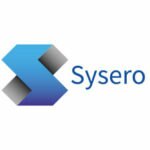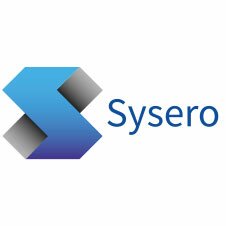Hybrid workflows – Where accessibility meets security
In the era of hybrid working, the importance of cloud-based applications is becoming increasingly clear within the legal sector. Law firm leaders are prioritising technology that supports agile working – with many opting for cloud-based workflow systems to drive productivity, efficiency, and cost-savings.
The most recent Briefing Legal IT Landscapes survey reports growing optimism amongst law firms leaders in their journey to the cloud. A year ago, just under half of leaders could see document production mainly in the cloud by 2024, and this year it’s risen to 72%.
Though cloud-based solutions offer an array of benefits, they also pose a unique set of challenges. Not only can cloud-based solutions put your data at-risk, they can also create significant compliance challenges. Here, we look at how firms can make the most of the benefits of cloud, while maintaining the security and assurance of maintaining data in-house.
The Challenges of Cloud-Based SaaS Solutions
Cloud-based Software-as-a-Service (SaaS) solutions provide countless benefits to the modern firm: there’s no need to run servers in-house, your hardware and software is maintained by experts, and you only need to pay for the number of seats you need.
However, many SaaS solutions, and particularly middleware systems such as workflow solutions, must be able to easily push and pull information from legacy in-house applications. For example, a client intake workflow might need to capture client data via a cloud-based form, and then share that information with a series of internal systems. This can pose significant challenges for firms, as data simply cannot be shared with external servers without massive compromises in security. The only way to ensure data security is to run an integrated workflow system on an in-house server.
Another reason cloud-based systems may not be a good option for law firms is due to a recent EU ruling known as Schrems II. Schrems II overturns a previous understanding that EU data held by US companies was exempt from being accessed by US authorities.American software giants – such as Google and AWS – currently represent around 70% of the global cloud market, which means if you’re using a cloud-based system, your data is most likely being hosted by organisations whose parent company falls under US jurisdiction. Schrems II means that these US-based cloud providers must provide appropriate contractual and technical solutions for holding personal data.
In a subsequent ruling by an EU-based court, the legal remedies were defined as the cloud provider having a “precise procedure to challenge any general access request from a US public authority”. The ruling also defined that the technical solution needs to store personal data using encryption and hold it for a “short period of time”. The combination of legal exposure and technical requirements are making many firms nervous of moving to the cloud.
Overcoming Challenges with a Hybrid System
Typically, firms need workflows to access data stored in multiple systems, with many of those systems running in-house. As mentioned previously, this means the workflows must also be running in-house. However, workflows also need to be able to gather information externally from clients and business partners, as well as internally from in-house staff and lawyers.
With an in-house system, externally generated information can only be communicated using traditional methods, and needs to be re-keyed into the workflow system by in-house staff. This can easily lead to data being entered incorrectly and mistakes being made, which not only risks a firm’s reputation, but can also have more immediate financial repercussions.
In an ideal world, clients and third-parties participate in workflows and enter their data directly into a single workflow system. As well as reducing errors interpreting instructions and re-typing data, direct access decreases transaction processing time, provides clients with immediate feedback as to the status of their requests, guides clients through the process of collecting all the required information, ensures all the information is provided in the correct format, and maintains an audit trail in case of any disagreements.
Sysero Hybrid offers firms a hybrid-cloud environment that combines a cloud-based system with an in-house Sysero server to enable your firm to host workflows that allow external parties to participate in workflows, whilst storing data in-house. Using Sysero’s hybrid-cloud solution, firms can publish forms to the Internet that are openly accessible to the general public, or available as part of a secure portal. These custom generated forms guide clients and third parties through a process of providing the required information to avoid mistakes, misunderstandings and incomplete data. Once the external party completes their part of the process, in-house staff are notified and can acknowledge that they have received instructions. The in-house system then “pulls” the data from the cloud system to be stored behind the firm’s firewall. Once the process is migrated to the in-house Sysero system, the workflow can continue and interact with any and all internal systems as required.
Developed in a post-Schrems II world, Sysero Hybrid meets the current standards as defined by the latest EU court rulings. Namely that the Cloud provider (which is AWS)has the legal tools to challenge the US enforcement agencies, personal data is stored in an encrypted format and data is held on the cloud for the shortest period of time possible.
As soon as information is entered on Sysero’s cloud system, the hybrid system sends a request to migrate the data in-house. If the request is not answered in a timely manner, the in-house system will pull any cloud data in-house on a predetermined schedule. Using this approach, Sysero Hybrid can be configured to hold data on the cloud for just a few minutes after creation.
Is your firm looking to work digitally with clients and business partners? Sysero Hybrid can help you strike the right balance between agility and security. Get in touch with our experts to learn more.



